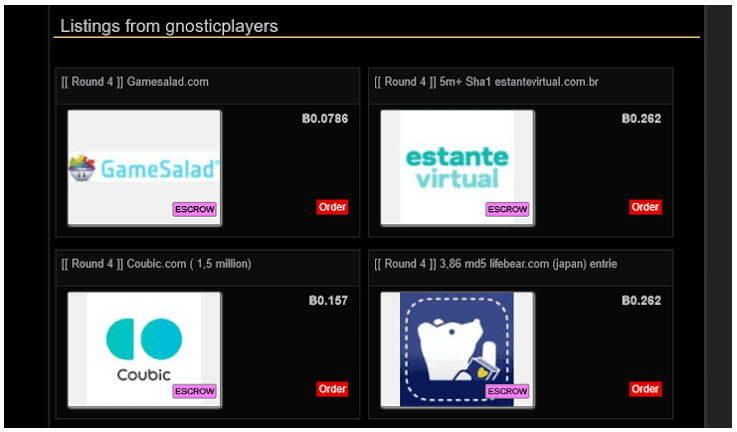
A growing trend during 2024 has been the digitisation of business data and the use of virtual data rooms, which allow greater transparency and facilitate access to information by buyers. It’s interesting then that more than half of sales reps simply don’t bother with sales account planning. The primary application of a sales account is to act as a record-keeping ledger, which would have the data of all the transactions carried out in the business for a given period. It has a provision for both Credit and debit transactions, and in some cases, separate space is allocated to distinguish both of the transactions. Some businesses use a new ledger for New Year and keep the transactions consolidated according to the day and month.
What are the different types of Game Accounts?
An oftentimes pricier but less commonly sold–both because of less demand and greater rarity–would be accounts that have premium items, as well as exclusive items from events and past content that have been discontinued. Each sales account is typically assigned to either one salesperson (if the account is a small one) or to a team of salespeople (if the account is a major one). For example, if the company has unsecured debts or unresolved legal risks, it is essential to work on solutions to mitigate such risks before putting the business on the market. This proactive approach requires time and resources, but it usually translates into a considerable increase in the value perceived by buyers, and leads to smoother negotiations. In my experience, one of the greatest risks for a successful sale is the emergence of unexpected problems during the due diligence.
COMPANY

During the due diligence, buyers will assess the business´ entire financial, legal and operational status. It is therefore essential to gather and organise all the necessary documentation before the sale starts. This includes audited accounts, key contracts, inventories, IP registries and any relevant information relating to litigation or ongoing risks.
- However, intangible assets such as intellectual property, client relationships, branding and team know-how are the ones which often bring the most strategic value to a business.
- This means not just in terms of accounting figures, but also identifying the assets and liabilities which may affect the transaction.
- With over 10 years of experience in the gaming industry, PlaySwap understands the concerns and challenges gamers face when buying and selling digital products.
- Another key issue to consider is the clear definition of the transaction perimeter.
- Buying and selling game accounts is an option that is increasingly being considered by gamers looking to enhance their gaming experience and earn money from their gaming activities.
- It represents the primary source of income from a company’s primary operations.
Prepare for the due diligence from the start
Being prepared for the due diligence can make the difference between a smooth transaction and one which falls through at the last moment. Hitesh Bhasin is the CEO of Marketing91 and has over a decade of experience in the marketing field. He is an accomplished author of thousands of insightful articles, including in-depth analyses of brands and companies. Holding an MBA in Marketing, Hitesh manages several offline ventures, where he applies all the concepts of Marketing that he writes about. These studies are usually performed by higher management, the board of directors, and leaders of the company who run it. SaaS companies, in particular, rely on subscriptions to generate their revenue, so every account truly does matter (especially the enterprise accounts, which likely make up a big chunk of that recurring revenue).
This involves responding to questions such as whether the objective is a total or partial sale, or whether the seller wants the business to continue operating under its current name. Okay, now that we got that out of the way, let’s jump into how to actually do the thing and work on a successful account planning process. According to one study, 44% of companies actually rely more on acquisition for existing accounts. Interestingly enough, the same study also showed that customer retention is more important to your business financially—just a 5% rise in retention rates can equal a profit increase between 25-90%. We built SalesHive on the premise that modern sales development was flawed, and the companies building outsourced programs were only contributing to that. Our unique approach empowers clients to build industry leading Sales Development programs that deliver real results with the assurance of total transparency, flexible month-to-month contracts, and flat-rate pricing.
We’ll go over the other two parts (short-term and long-term action items) in the next step. Account planning, while effective, does take a fair amount of time and resources. A sales account is a specific customer or group of customers that a sales team focuses on for generating revenue.
In financial statements, particularly the income statement, this account displays the total sales (or revenue) generated by a business before any returns, allowances, or discounts are deducted. (Learn how to deliver a killer one here.) This is where you’ll present your sales account plan—namely the action items you have in mind for them. You now have a sales account plan to guide you through your most complex accounts and a bird’s eye view of exactly what you need to do in the short term and long-term future to both close and retain them. With over 10 years of experience in the gaming industry, PlaySwap understands the concerns and challenges gamers face when buying and selling digital products.
Game Accounts refer to player profiles or accounts that are bought, sold, or traded. Buying and selling game accounts is an option that is increasingly being considered by gamers looking to enhance their gaming experience and earn money from their gaming activities. High-level Accounts High-level accounts are fully developed game accounts with characters that have reached advanced levels, offering access to most or all in-game content. These accounts often include powerful gear, rare items, and advanced achievements, making them attractive to players who want to jump straight into endgame content. Buyers of high-level accounts can participate in high-ranking missions, raids, or competitive modes without having to build their way up.
You can explore player to player online trading platforms to see whether the value of the Steam account is a good fit. Besides, finding something that’s not too low (that you get shortchanged), and not too high (that you’d have a hard time selling) is a wise move. The format of account sales shown in the above example is pretty much simple.
Whether it’s a top-tier rank in a multiplayer game like League of Legends or a high skill rating in Overwatch, ranked accounts offer immediate access to competitive play at an advanced level. Players often buy video game accounts of this type to quickly enter high-level competitive play. Intermediate accounts are game accounts with moderate progress, featuring characters that are partially leveled up accrual basis accounting vs cash basis accounting and have completed some achievements or unlocked content. These accounts are ideal for players who want to avoid the early grind but still prefer to engage in some gameplay development before reaching the highest levels. Intermediate accounts often have a mix of basic and moderately rare items, gear, or currencies. The consignee may have to pay some expenses in respect of the goods consigned to him.
It also positions your product is a long-term solution, not just a quick fix. The account total is then paired with the sales returns and allowances account to derive the net sales figure that is listed at the top of the income statement. Once assets and liabilities have been identified, using valuation methods which best suit the type of business and its characteristics is key. The EBITDA multiple and Discounted Cash Flow valuation methods are two of the most common in Spain. They both offer complementary perspectives of a company´s value, and provide a solid justification of the sale price to potential buyers.




